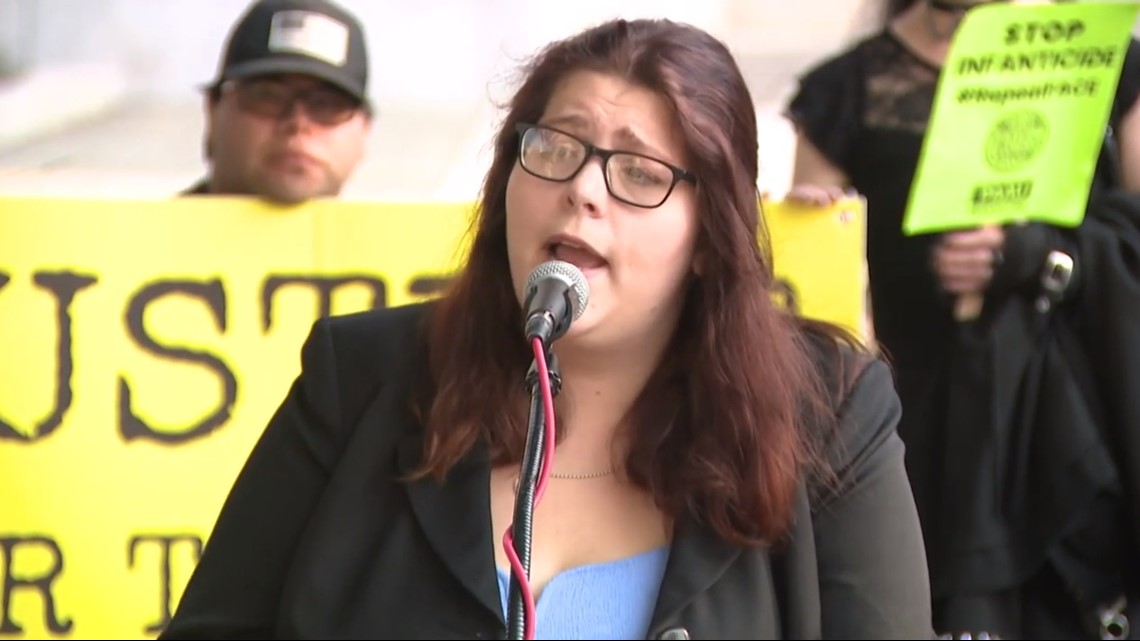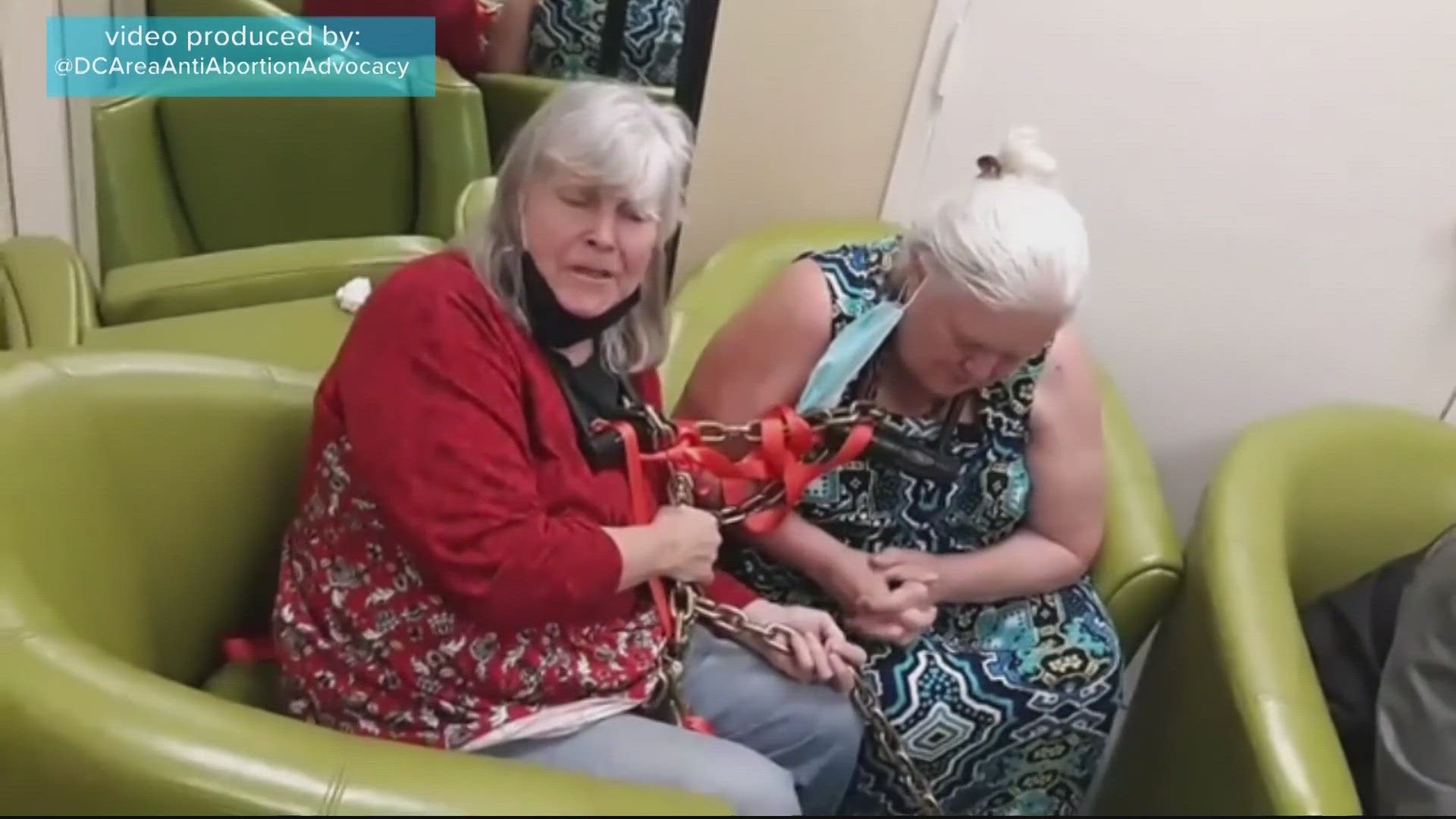WASHINGTON — A Pennsylvania woman was forced to climb through a window to receive treatment at a D.C. clinic after anti-abortion protesters harassed her and physically blocked all the doors, she testified Wednesday during the trial of five activists facing federal charges.
The 27-year-old woman, who was allowed to testify under the pseudonym “Ashley Jones,” said she traveled from Pennsylvania to receive care from the Washington Surgi-Clinic on F Street NW. On two prior days she had entered the clinic without issue, she said, but on Oct. 22, 2020, she was met at the entrance by a group of anti-abortion protesters who grabbed at her, told her she was going to hell and followed her all the way into the clinic – where they barred her from entering both a door used by patients and a door for clinic employees.
“I tried to be nice with them in the elevator,” she said, “but they weren’t being nice. They wouldn’t stop. They were just repeating the same things they were saying. They were being aggressive and mean. I was just trying to go to my appointment. Everything else was just very distracting.”
Jones was called Wednesday as the first witness in the government’s case against Lauren Handy and four other anti-abortion activists who face felony charges alleging they conspired to blockade the clinic. Surveillance video entered as evidence Wednesday shows members of the group forcing their way into the clinic and struggling with clinic employees who tried to keep them out – knocking over and injuring a clinic nurse in the process – before using ropes and chains to bind themselves to chairs and block doorways.
Handy, who founded the anti-abortion group Mercy Missions and serves as director of activism for Progressive Anti-Abortion Uprising, is the woman who reported possessing more than 100 fetal remains in her Capitol Hill rowhouse in March 2022. No charges were ever filed in connection with those remains and U.S. District Judge Colleen Kollar-Kotelly, who is presiding over the clinic blockade case, has barred photographs of them from being entered as evidence at trial.
A clinic employee also called as a witness by the government Wednesday said Handy booked an appointment for the morning of Oct. 22 under the false name “Hazel Jenkins.” When the employee opened the door, Handy and other members of her group rushed through. Surveillance video entered in the case appeared to showed Handy directing other activists on how to set up their blockade of the clinic’s waiting room.
Video shows a visibly and audibly distraught Jones in the lobby of the clinic asking a police officer, “How is this allowed?” as he fruitlessly tried to remove members of the anti-abortion group. Other officers were eventually called in to bring a saw to cut through the chains and what appeared to be a bike lock one of the activists had placed around her neck. Jones was ultimately able to receive treatment after she climbed through a window into the reception area.


The government’s case against Handy, who they have described as the leader of the conspiracy, was bolstered Wednesday afternoon by testimony from another activist, Caroline Davis, who agreed to cooperate with the investigation as part of a plea deal in a separate but similar case in Michigan. Davis testified Wednesday that Handy had explained the plan in detail, as well as the consequences of violating the Freedom of Access to Clinic Entrances (FACE) Act, during a meeting held the night before the blockade. Davis’ testimony was expected to continue Thursday.
Video played for jurors Wednesday showed Handy on the day of the blockade telling police her name was “Bryce” and that members of her group were “basically blocking the facility to prevent abortions.” In the video, Handy explained that some members who did not want to “risk the ordinance” would be praying outside of the clinic.
Handy, who has previously been convicted for similar incidents at clinics in Alexandria and Michigan, has denied criminal wrongdoing and argued the case would have been more appropriately charged under local trespassing statutes. Her attorneys have indicated she intends to testify later in the trial, although Kollar-Kotelly has barred her from telling jurors she believed the clinic or its physician were engaged in unlawful practices.

